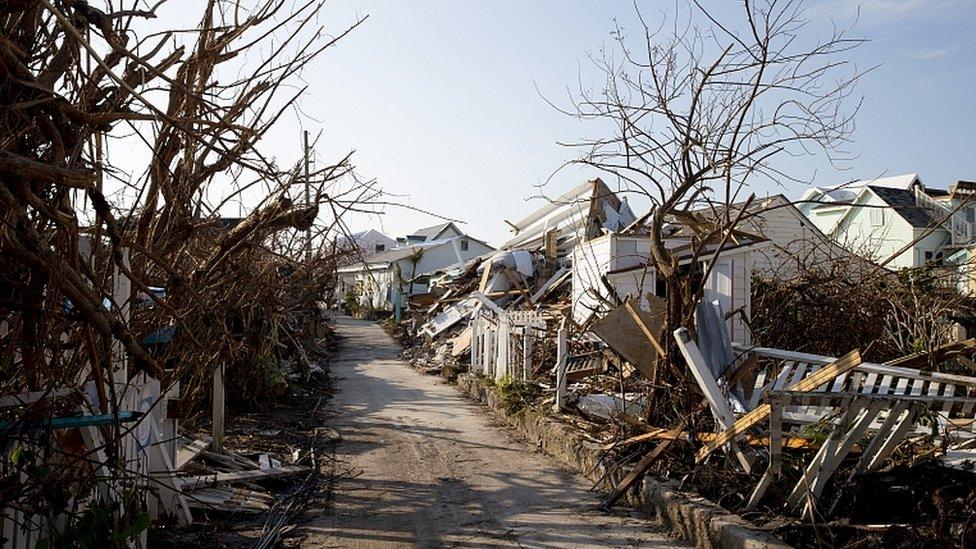Hurricane Dorian: Bahamas defends response amid criticism
- Published
On board a UK ship offering aid and rescue to the Bahamas
Bahamian officials have defended their response to Hurricane Dorian after it devastated parts of the island chain last week, killing at least 45 people.
Residents on the Abaco Islands have accused the government of failing to provide assistance and prevent looting.
Officials have denied covering up the number of deaths. The toll is likely to rise as hundreds, possibly thousands, of people are still missing.
Some 70,000 people were in need of food and shelter, the United Nations said.
Thousands of residents from the hardest-hit areas in the Abacos have been sent to the country's capital, Nassau, where authorities say they may have to use tents or containers to house the victims.
Health Minister Duane Sands dismissed allegations that the government was covering up the number of victims,, external saying the priority was not to count the dead but to search for the missing and provide assistance to those in need, according to the Miami Herald newspaper.

Hardly anyone here
The BBC's Mat Morrison on the Abaco Islands
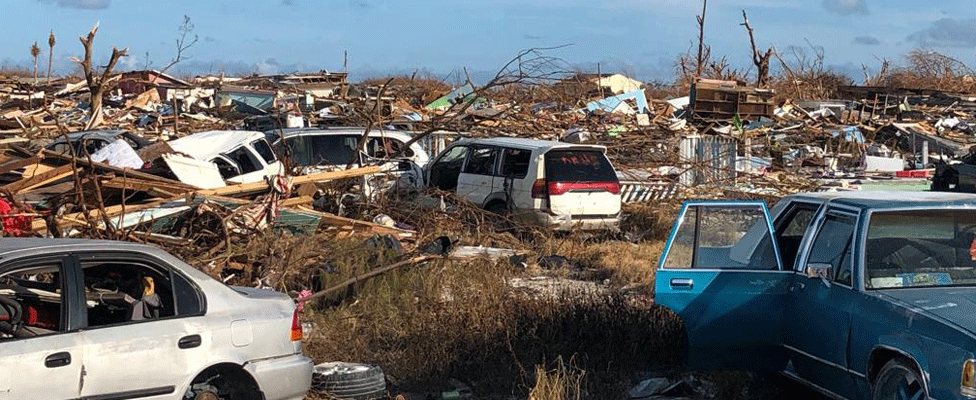
Locals here warn us that there are more bodies buried beneath the rubble in Marsh Harbour, especially in the shanty towns known as the Mudd and Pigeon Peas.
They wonder why officials haven't come to retrieve all those who perished during Hurricane Dorian. As you walk around the town, there is very little in terms of any official presence. In fact, there's hardly anyone at all - just a scattering of locals looking through what once was their homes, or rummaging for food or supplies.
On the hood of a car in one of the worst-hit areas lies the corpse of a large dog, untouched since the storm. Its presence speaks to the lack of attention this area has received in the week since Dorian hit this island.

'No food, no medicine, no water'
In Marsh Harbour, where 90% of infrastructure is damaged or destroyed, residents complained that aid had been too slow to arrive.
"We've had to funnel gasoline out of destroyed cars to get injured people back and forth. There's no food, no medicine and no water," said 37-year-old Tepeto Davis. "We're suffering out here and no-one cares about us."

Carl Smith, spokesperson for the Bahamas' National Emergency Management Agency (Nema), said: "[We're] doing everything [we] can to move as effectively and as efficiently as [we] can, given the circumstances. We're dealing with a disaster."
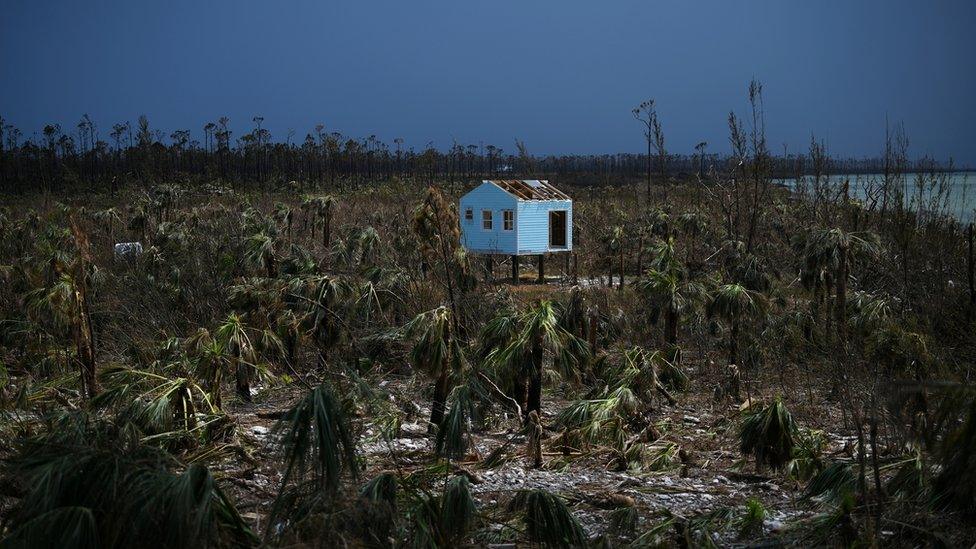
Some 70,000 people are in need of food and shelter, according to the UN
There were also fears that diarrhoea and waterborne diseases could spread as drinking water might be contaminated, the Pan American Health Organization said, but no cases of cholera had been reported.
Mark Green, head of the US Agency for International Development (USAID), said he had been "struck by the focused nature of the devastation" on the Abacos, and that some areas looked "almost as though a nuclear bomb was dropped".
Victim in Nassau: 'I need a house'
About 3,500 people have been evacuated to Nassau by passenger planes, cruise liners and government boats and ships. While some were scrambling for shelter others worried that it would take a long time for them to rebuild their lives.
"The government says everyone's being fed, and that's good," 61-year-old Anthony Morley told Reuters news agency at a resort where volunteers had subsidised rooms for survivors. "But for food I can fish. What I need is a house. I don't have a bed, a refrigerator."
"Plenty of people are dead," says survivor from Hurricane Dorian
Jenelle Eli, a spokeswoman for the Red Cross, said: "People are concerned about their next step, but also how they'll earn an income and what their lives will look like in the future."
On Saturday, a humanitarian cruise ship carrying 1,400 people docked in Riviera Beach, Florida. There were reports on Sunday that passengers aboard a ferry boat which was leaving the Bahamas for the US were ordered to disembark if they did not have a visa.
In a statement, the US Customs and Border Protection said it "strongly encourage[d] private vessel and aircraft operators, external to co-ordinate any evacuation missions with Bahamian authorities before evacuating anyone from the Bahamas".


Meanwhile, the UN's World Food Programme is sending food and supplies. Other offers of international help include:
USAID has said it will allocate $2.8m (£2.3m) in help, as well as emergency supplies for 44,000 people
The American Red Cross says it has committed $2.8m
The UK Royal Navy and private organisations are helping evacuate residents to Nassau
Dorian ripped through the northern Bahamas as a category five hurricane with winds gusts of 300km/h (200mph) and huge storm surges.
The hurricane has diminished into a post-tropical cyclone and it smashed into the Canadian province of Nova Scotia on Saturday, toppling trees and cutting power to more than 450,000 people.

How have you been affected by Hurricane Dorian? Share your experiences of the aftermath by emailing haveyoursay@bbc.co.uk, external.
Please include a contact number if you are willing to speak to a BBC journalist. You can also contact us in the following ways:
WhatsApp: +44 7756 165803
Tweet: @BBC_HaveYourSay, external
Send pictures/video to yourpics@bbc.co.uk, external
Text an SMS or MMS to 61124 or +44 7624 800 100
Please read our terms of use and privacy policy
- Published5 September 2019
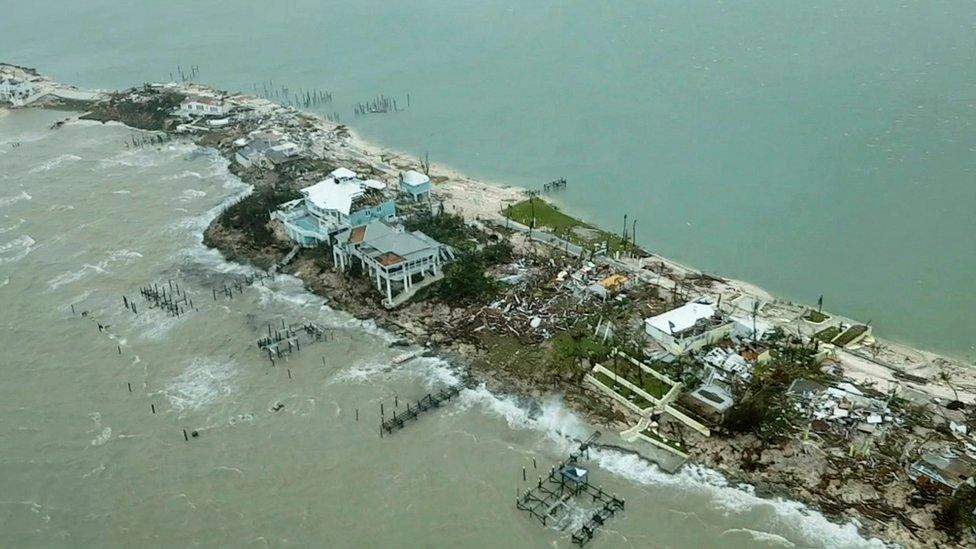
- Published6 September 2019
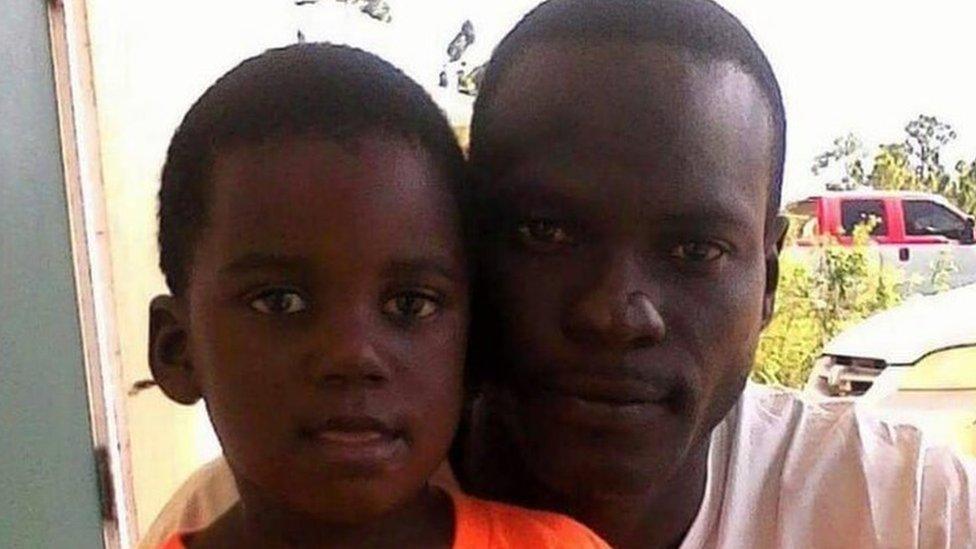
- Published3 September 2019
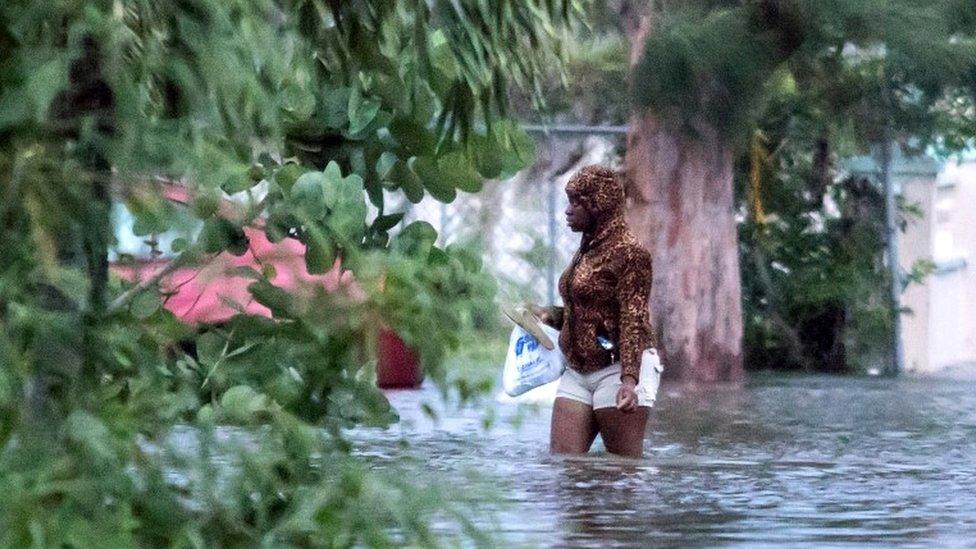
- Published7 September 2019
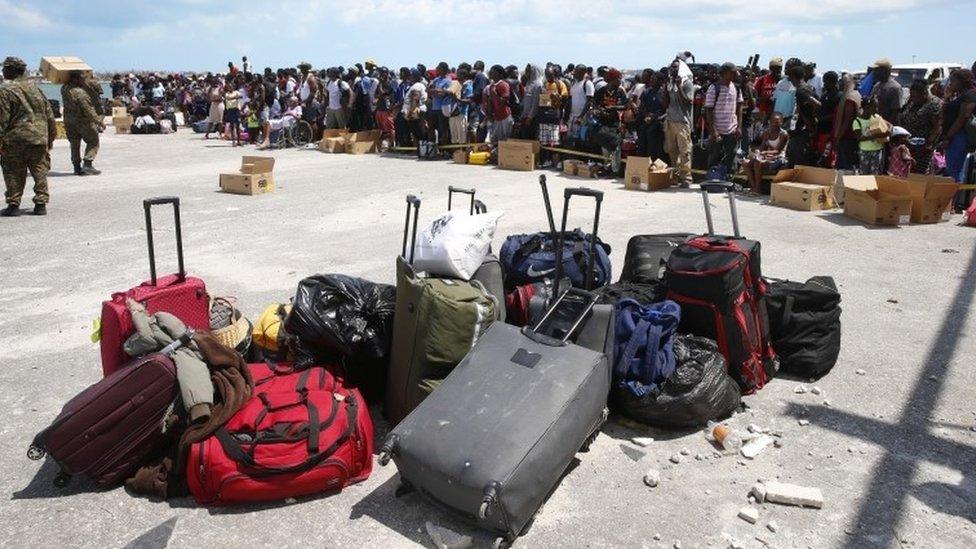
- Published7 September 2019
